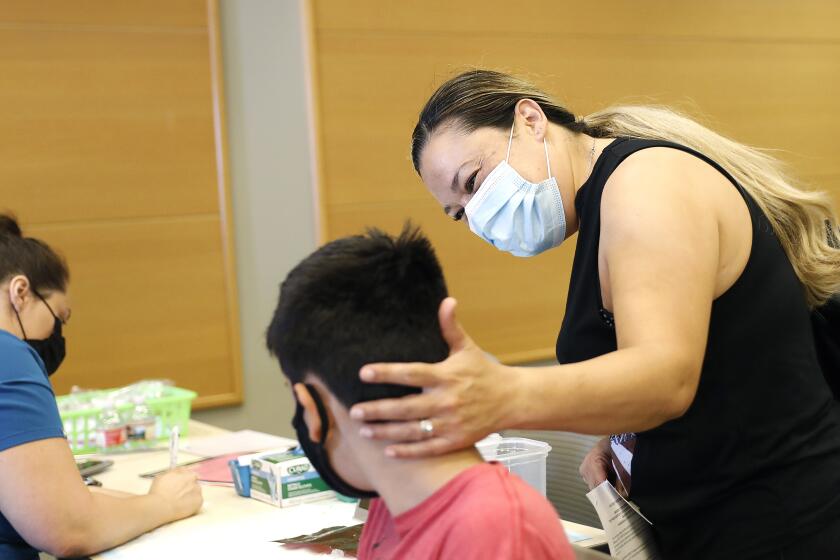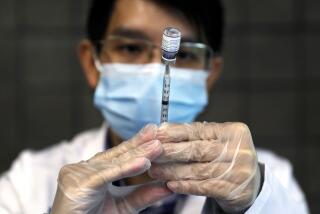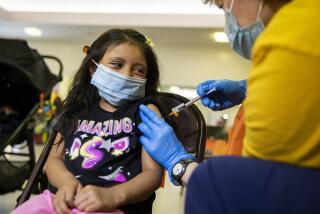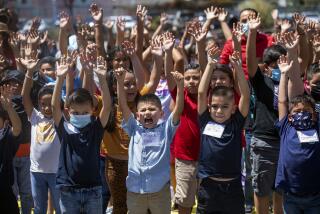A quarter of unvaccinated young adults unlikely to get a COVID-19 shot, study finds
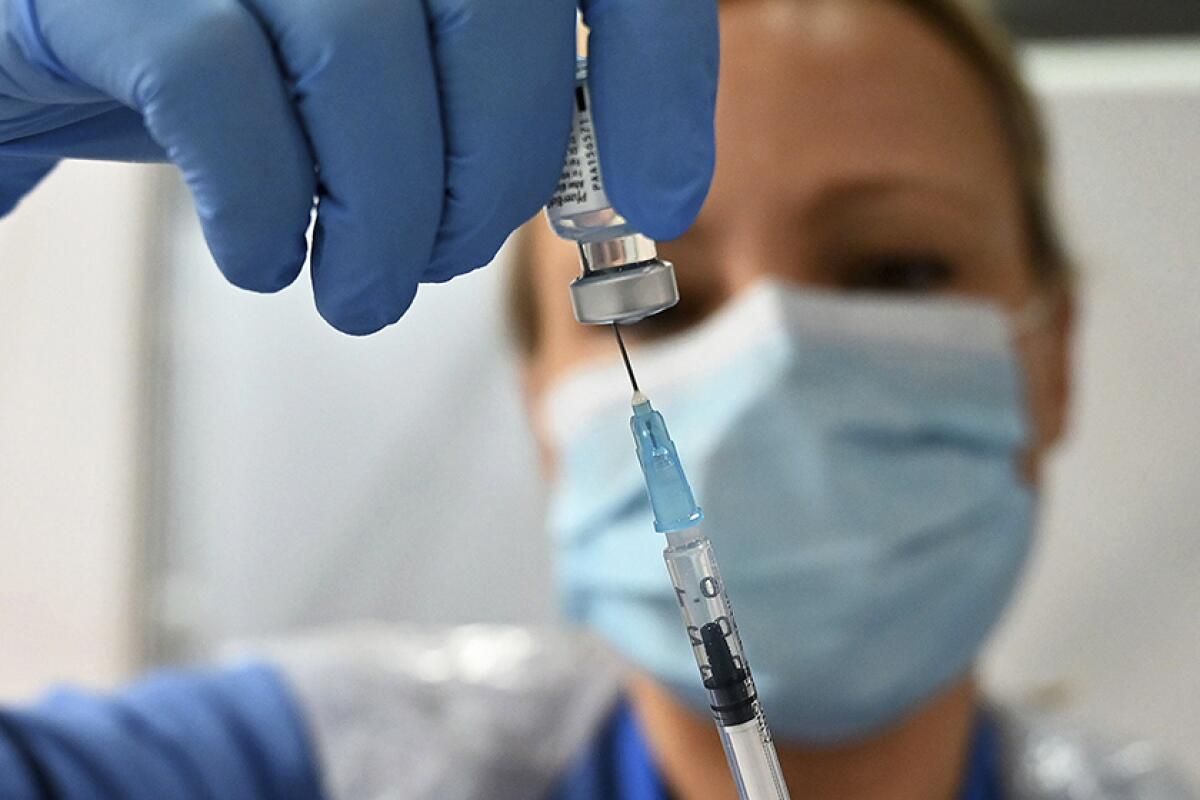
- Share via
A quarter of young adults in the United States ages 18 to 25, a group most likely to transmit the coronavirus, say they “probably” or “definitely” won’t get vaccinated against COVID-19, according to a study released Wednesday.
The UC San Francisco study says this reluctance among young adults to get vaccinated threatens the health of older unvaccinated adults and may contribute to the rise of viral variants. The hesitancy also will make it more difficult for the U.S. to achieve herd immunity, which requires about 85% of the population to be vaccinated, the study authors say.
The study analyzed March data from the Household Pulse Survey, an online nationally representative population sample conducted by the U.S. Census Bureau in collaboration with the National Center for Health Statistics and other agencies.
Eighty-three percent of 5,082 young adults said they had not been vaccinated. Ten percent of the unvaccinated said they definitely would not get a vaccine and 14% said they probably would not.
Few young adults die of COVID-19, but the age group accounts for more than one-fifth of all COVID-19 cases so far, the study says. It points to previous research that found one-third of young adults also are at risk for severe cases of the disease.
“Young adults who have had COVID, regardless of symptoms, may be vulnerable to long-term complications and debilitating symptoms that may include respiratory difficulties, loss of smell and brain fog, often referred to as ‘long COVID,’” said UCSF researcher Sally Adams.
Adams cited estimates that 10% to 50% of infected young adults develop long COVID symptoms, “which is a serious concern for young adults given their high infection rates and low vaccination rates.”
More than half the unvaccinated respondents who were unlikely to get vaccinated said they worried about side effects from the vaccine. Some said they might get the vaccine later if they determined it was safe.
Dr. Charles Irwin Jr., director of the Division of Adolescent and Young Adult Medicine at UCSF Benioff Children’s Hospital, said recent reports of rare instances of heart inflammation among young adults who received the Pfizer-BioNTech and Moderna vaccines may have fueled the fears.
“It’s important to note that the rate of heart inflammation in young people who have been vaccinated is only slightly higher than in young people who have not been vaccinated,” Irwin said. “In most cases, symptoms are mild and resolve with minimal treatment.”
Unvaccinated people, perhaps hoping they might outlast the pandemic without getting a shot or getting sick, may be playing an increasingly risky game of chance.
There is a 0.00126% risk of developing heart inflammation within 21 days of getting a second dose of the COVID-19 vaccines for those ages 12 to 39, according to data presented by an expert vaccine panel to the Centers for Disease Control and Prevention.
Most medical providers support the CDC’s recommendation that everyone ages 12 and older should be vaccinated, Irwin said.
The study, published Wednesday in the Journal of Adolescent Health, calls for a public information campaign using social media aimed at young adults. The report also urges doctors to confront vaccine hesitancy among their patients.
More to Read
Sign up for Essential California
The most important California stories and recommendations in your inbox every morning.
You may occasionally receive promotional content from the Los Angeles Times.
